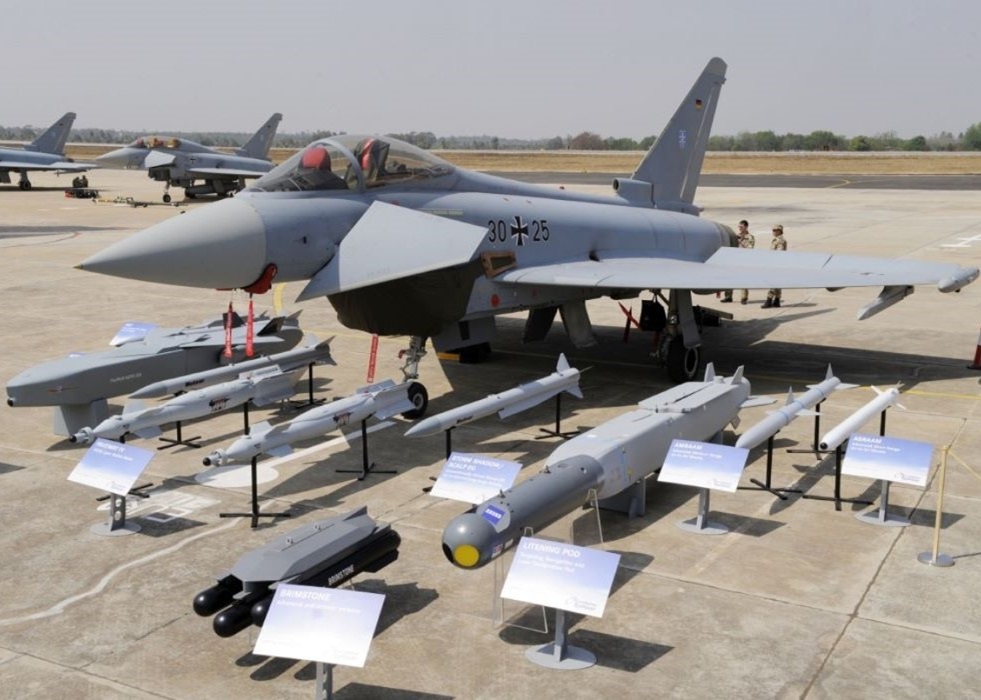The Defence Ministry said that Germany’s Bundestag Budget Committee has approved the purchase of 20 more Eurofighter Typhoon planes for about €3.75 billion ($4.36 billion). The deal is the first stage in the Tranche 5 phase and will provide the German Air Force with supplies from 2031 to 2034.
The decision is part of a larger defence package worth more than €7 billion, which includes 14 key projects that need approval from Parliament. The Defence Ministry said that the clearances are meant to “keep the Bundeswehr ready for action and make sure our soldiers keep getting the gear they need.”
Andreas Schwarz, a Social Democrat MP in charge of the defence budget, claimed that the purchase will keep the Eurofighter operating until 2060. NATO operations will also acquire better data collecting and electronic warfare capabilities.
Germany’s renewed commitment is a big boost for the Eurofighter consortium—Airbus, BAE Systems, and Leonardo—as Berlin works to improve its next-generation air combat capabilities while continuing to work together on the Future Combat Air System (FCAS) program. Germany agrees to the Eurofighter Tranche 5 contract
The budget committee in Germany has given the go-ahead for the procurement of 20 new Eurofighter planes for €3.75 billion. This means that the Tranche 5 manufacturing phase can commence by 2031.
The Defence Ministry said that Germany’s Bundestag Budget Committee has approved the purchase of 20 more Eurofighter Typhoon planes for about €3.75 billion ($4.36 billion). The deal, which is the first stage in the Tranche 5 phase, will send supplies to the German Air Force from 2031 to 2034.
The decision is part of a larger defence package worth more than €7 billion that includes 14 significant projects that need approval from Parliament. The Defence Ministry said that the clearances are meant to “keep the Bundeswehr ready for action and make sure our soldiers keep getting the gear they need.”
Andreas Schwarz, a Social Democrat MP in charge of the defence budget, claimed that the purchase will keep the Eurofighter operating until 2060. NATO operations will also acquire better data collecting and electronic warfare capabilities.
Germany’s renewed commitment is a big boost for the Eurofighter consortium—Airbus, BAE Systems, and Leonardo—because it will help Berlin improve its next-generation air-combat capabilities and work together on the Future Combat Air System (FCAS) program.
The next version is believed to include big improvements in computational power, radar and sensor fusion, modular software architecture, and electronic warfare capabilities, even though the full Tranche 5 specs have not yet been made public. It will also include more versatile weapon setups and better mission management for activities that have more than one role.
Sources in the industry say that these changes are part of the “Long-Term Evolution (LTE)” and “P4E (Programme 4 Enhancement)” roadmaps. These roadmaps are meant to slowly enhance the Typhoon’s radar and avionics capabilities.
But the real performance improvements of Tranche 5 will rely on how the partner firms share duties, how well they work together, how much it costs, and how hard it is to integrate. It is recognised that changing software and system design is more harder than upgrading hardware. This means that it may take years before the full benefits of Tranche 5 are seen in practice.
